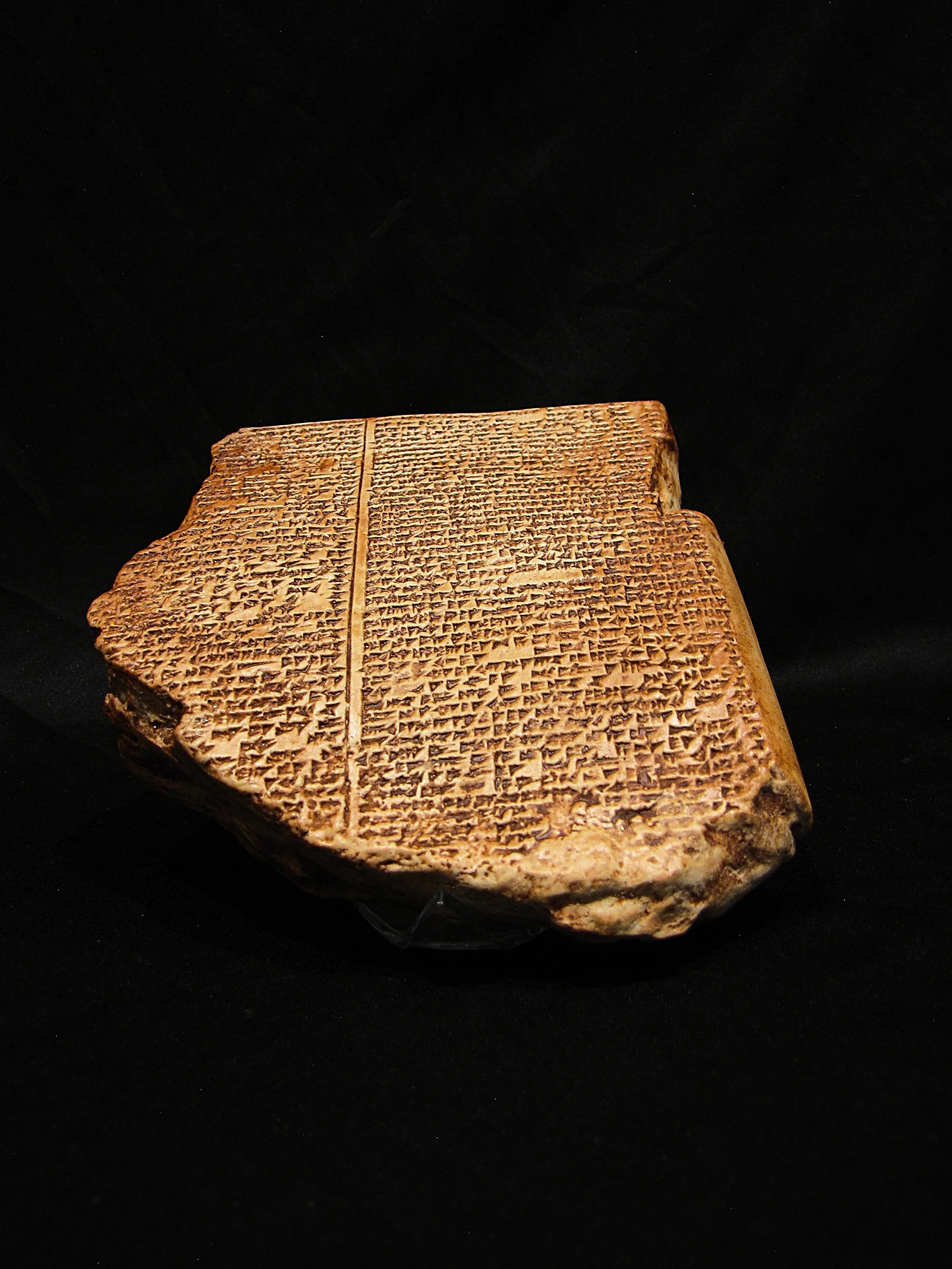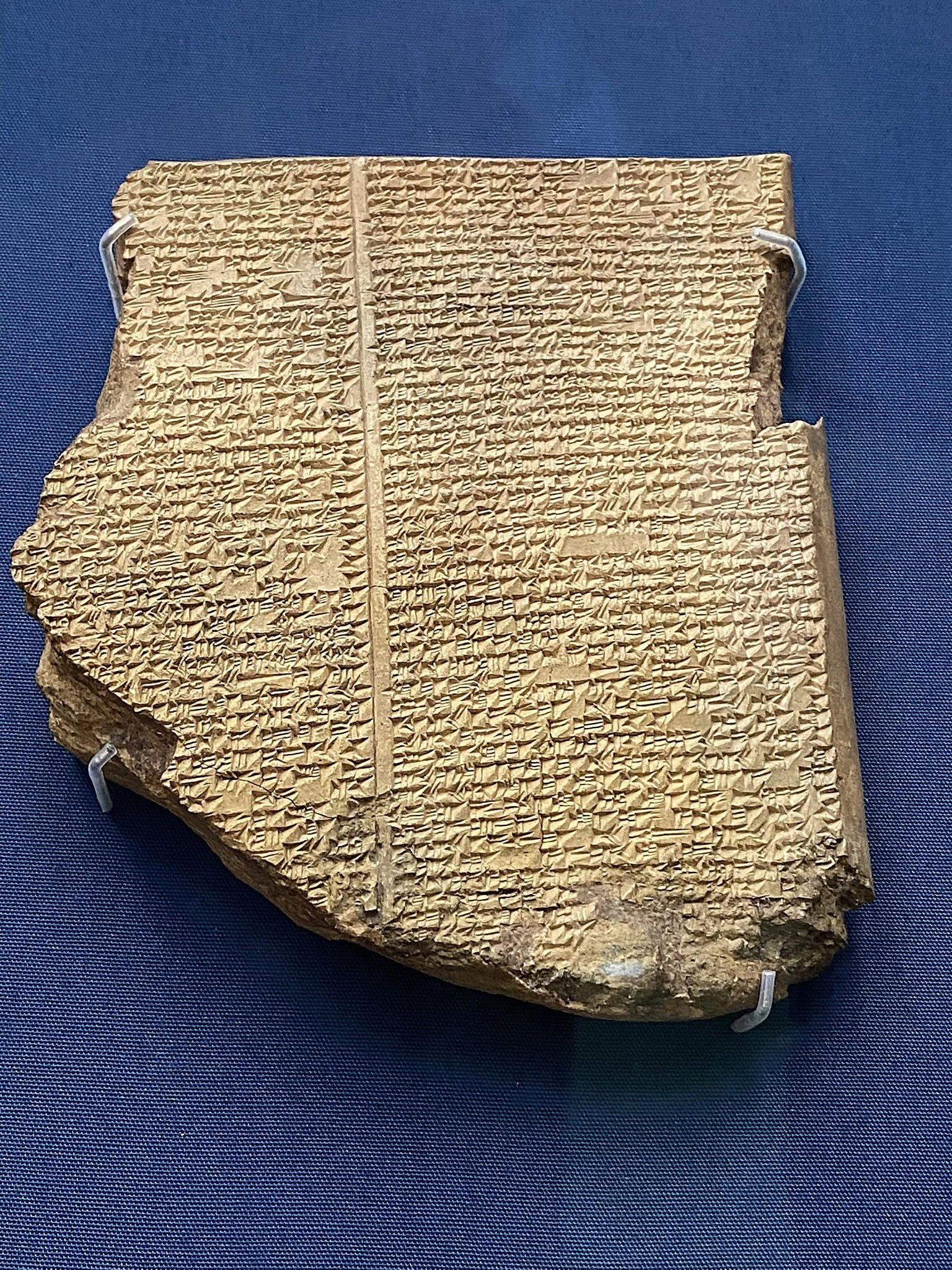The original tablet in the British Museum.
Replica of the Epic of Gilgamesh Flood Story
This Assyrian cuneiform tablet was written in approximately 700 BC. This tablet is humankind’s oldest reference to the great Deluge, outside of the Bible. The tablet shares several lines from the beginning of the Biblical Flood story, which is the forerunner of he Babylonian Gilgamesh Epic and the source of the Atra-Hasis Myth. According to the British Museum, this tablet (eleventh of the thirteen Gilgamesh tablets), is perhaps the most famous in the world. The tablet describes how the gods sent a flood to destroy the world. Like Noah, Utnapishtim is forewarned and builds an ark to escape and preserve living things. Humankind is destroyed while Utnapishtim survives, finally landing on a mountain called Nimush. After he flood he sends out birds to find dry land.
Excavated from the Nineveh Library of Ashurbanipal by A.H. Layard in the mid 19th century, commentators agree that the story hails from a a much earlier period, not long after the flood described in the story. One of the few kings of antiquity who could read and write, Ashurbanipal created an extraordinary underground library at Nineveh, where he gathered all ancient texts, tablets and literature available, dispatching emissaries as far as India, Egypt and Thrace. The Gilgamesh set was amongst the 50,000 tablets recovered. This Assyrian version of the Old Testament flood story was identified in 1872 by George Smith, an assistant at the British Museum.
“O man of Shuruppak, son of Ubartutu: Tear down the house and build a boat! Abandon wealth and seek living beings! Spurn possessions and keep alive living beings! Make all living beings go up into the boat. The boat which you are to build, its dimensions must measure equal to each other: its length must correspond to its width. Roof it over like the Apsu.
“You gods, as surely as I shall not forget this lapis lazuli around my neck, may I be mindful of these days, and never forget them! The gods may come to the incense offering, but Enlil may not come to the incense offering, because without considering he brought about the Flood and consigned my people to annihilation.”
The Epic of Gilgamesh, Tablet XI, “Belet-ili, Ishtar as the mother goddess, after the Flood.”

